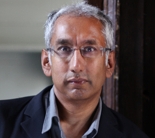Failure of multiculturism stems Terrorism? |
Mass immigration has been a boon to Western Europe. It has brought great economic benefits and helped create societies that are less insular, more vibrant and more cosmopolitan. But the policies designed to manage immigration have been largely a disaster. To see why, one needs only to look at the experience of Britain and Germany. Both have adopted multicultural policies, though they have taken different paths. The consequences, however, have been similar.
Thirty years ago, Britain was a very different place than it is now. Racism was vicious, visceral and often fatal. “Paki bashing,” the pastime of hunting down and beating up Britons with brown skin, became a national sport in certain circles. I remember organizing patrols on the streets of East London during the 1980s to protect South Asian families from rampaging racist thugs. Workplace discrimination was endemic and police brutality frighteningly common. Anger at such treatment came to an explosive climax in the riots that rocked London, Liverpool, Birmingham, Bristol and other cities during the late 1970s and early 1980s. It was in response to this rage that Britain’s multicultural policies emerged.
The British government developed a new political framework for engaging with minority groups. Britain was now in effect divided into a number of ethnic boxes — Muslim, Sikh, Hindu, African, Caribbean and so on. The claims of minorities upon society were defined less by the social and political needs of individuals than by the box to which they belonged. Political power and financial resources were distributed by ethnicity.
The new policy did not empower individuals; instead, it enhanced the authority of so-called community leaders, often the most conservative voices, who owed their positions and influence largely to their relationship with the state. In 1997, the Islamist groups that had led the campaign against Salman Rushdie’s “Satanic Verses” during the 1980s helped set up the Muslim Council of Britain. Its first general secretary, Iqbal Sacranie, had once declared death “too easy” for Mr. Rushdie. Polls showed that fewer than 10 percent of British Muslims believed that the council represented their views, yet for more than a decade the British government treated it as their official representative.
Politicians effectively abandoned their responsibility to engage directly with minorities, subcontracting it out to often reactionary “leaders.”
If the prime minister wanted to get a message to the “Muslim community,” he called in the council or visited a mosque. Rather than appealing to Muslims as British citizens, politicians preferred to see them as people whose primary loyalty was to their faith and who could be politically engaged only by other Muslims. As a result religious — and Islamist — figures gained new legitimacy in their own neighborhoods and came to be seen by the wider society as the authentic voice of British Muslims.
More progressive movements became sidelined. Today “radical” in an Islamic context means someone who is a religious fundamentalist. Thirty years ago it meant the opposite: a secularist who challenged both racism in the streets and the power of the mosques. Secularism was once strong within Muslim communities, but it has been squeezed out by the new relationship between the state and religious leaders.
Many second-generation British Muslims now find themselves detached from both the religious traditions of their parents, which they often reject, and the wider secular society that insists on viewing them simply as Muslims. A few are drawn inevitably to extremist Islamist groups where they discover a sense of identity and of belonging. It is this that has made them open to radicalization.








 Kenan Malik Born in India, broughtup in Manchester and now lives in London, Malik is a writer, lecturer, broadcaster (and occassional troublemaker!). He is Senior Visting Fellow at the Department of Political, International and Policy Studies at the University of Surrey besides being a presenter of Analysis, BBC Radio 4's flagship current affairs programme and a panelist on the MoralMaze. He is the author of “From Fatwa to Jihad: The Rushdie Affair and ItsLegacy.”
Kenan Malik Born in India, broughtup in Manchester and now lives in London, Malik is a writer, lecturer, broadcaster (and occassional troublemaker!). He is Senior Visting Fellow at the Department of Political, International and Policy Studies at the University of Surrey besides being a presenter of Analysis, BBC Radio 4's flagship current affairs programme and a panelist on the MoralMaze. He is the author of “From Fatwa to Jihad: The Rushdie Affair and ItsLegacy.”
Post new comment